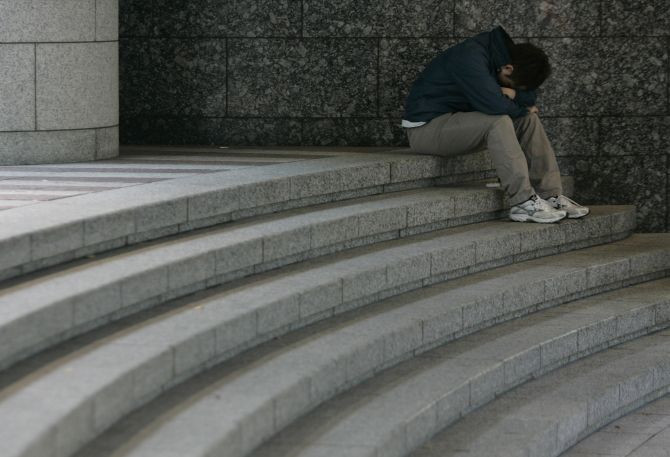Recession Linked to Increased Suicide Rates in the US.

Almost a million people across the world die each year due to suicide. Although, lower and middle income countries continue to bear the burden of most number of suicides, high income countries like the U.S., have seen an increase in the number of suicides after the recession that hit the world in the year 2007.
In a latest study researchers found that the rates of suicides in the U.S., nearly quadrupled between 2008 and 2010.
For the study, researchers used data from the Centers for Disease Control and Prevention on mortality and suicide between the years 1999 and 2010. The rate of suicide was found to have increased slowly between 1999 and 2007, but saw a huge spike between 2008 and 2010.
Researchers found that 1,500 additional suicides occurred when the economy started falling in the U.S.
Authors have used similar research model to estimate the rate of suicides in England after the recession. According to them, unemployment accounts for at least a quarter of these additional suicides.
"In the run-up to the US Presidential election, President Obama and Mitt Romney are debating how best to spur economic recovery. Missing from this discussion is consideration of how to protect Americans' health during these hard times," said Aaron Reeves from the University of Cambridge, UK, lead author of the study.
"Suicide is a rare outcome of mental illness, but this means that these data are likely the most visible indicator of major depression and anxiety disorders among people living through the financial crisis, as revealed by recent research in Spain and Greece," Reeves added.
Authors say that the U.S. can follow examples of countries like Sweden that have witnessed major economic downturn in the recent years but have been able to prevent suicides.
"The fact that countries such as Sweden have been able to prevent suicide rises despite experiencing major recessions reveals opportunities to protect Americans from further risks of suicide during the continued economic downturn. There is a clear need to implement policies to promote mental health resilience during the ongoing recession," the authors concluded.
The study is published in the journal The Lancet.
Previous studies have shown that the economic crisis has led to increase in child abuse in the last few years. The credit-crunch has also led to an increase in the number of skin-related conditions like eczema and psoriasis.
Published by Medicaldaily.com



























